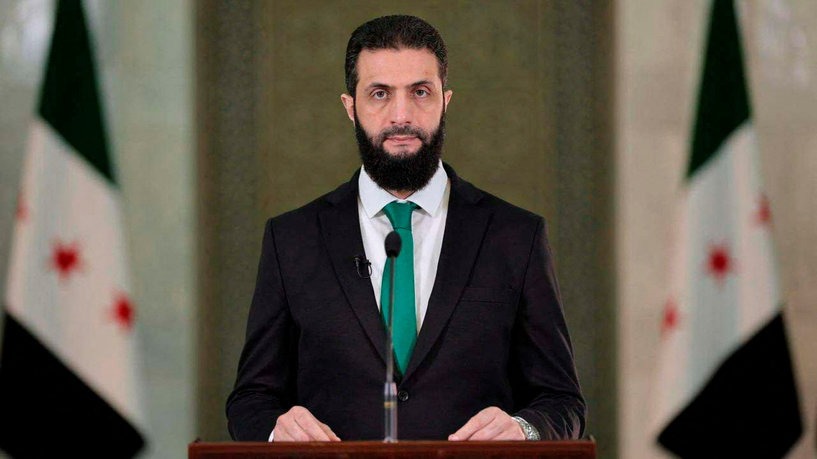In a scene that most optimistic did not imagine years ago, Ahmed Al -Shara, previously nicknamed “Abu Muhammad Al -Jolani”, moved from a leader of an armed faction in Idlib to a transitional president of Syria after the overthrow of the Bashar al -Assad regime in December.
During the first six months of his rule, Sharia managed to achieve sudden diplomatic breakthroughs and partially raising international sanctions, but still faces enormous challenges internally and externally that may determine the fate of the transitional phase.
Sharia in Syria … external success and internal challenges
From the first days of his transfer to Damascus, Sharia has been implicit political recognition from a number of major powers, after his pledge to ensure a five -year “stable transition” stage.
Indeed, he was able to attract the attention of the international community and raise some US and European sanctions, which partially moved the economy, and opened the door to the flow of some goods and services.
Sharia and sectarian file in Syria
According to reports, the first months of Sharia ruling witnessed a wave of sectarian violence, which affected the upper minority and claimed the lives of more than 1700 people in just two days, and attacks were later repeated targeting the Druze.
These incidents put the transitional leadership in a real dilemma, and raised questions about the ability of Sharia to ensure the security of minorities and build a new social contract.
Sharia and dispute with the Kurds on decentralization in Syria
The dispute with the Kurds in northeastern Syria remains one of the most prominent files of the transition. The Kurdish self -administration announced its adherence to the form of a central rule that guarantees the continuation of its institutions, which is rejected by the central authority in Damascus.
Dismantling the security services in Syria
Sharia has made an unprecedented step by solving most of the security services and the army of the former regime, in an attempt to establish new more professional security institutions. However, this step was accompanied by major challenges, most notably some armed factions, and the continued activity of militant groups within the previous areas of influence. International concerns have increased the Sharia inability to control these factions, especially in light of the escalation of sectarian violence.
In response to American pressure, it was reported that the interim government sent a message to Washington pledged to “freeze the promotions of foreign fighters”, in an attempt to reassure the international community.
Sharia, ISIS file, and foreign fighters in Syria
The transitional government faces a real dilemma related to tens of thousands of detainees from ISIS fighters and their families, who are in the Syrian Democratic Forces. New Damascus does not have the logistical ability or security to receive them, while Western countries refuse to return them.
At the same time, the presence of thousands of foreign fighters who fought alongside the opposition factions represents a political and security burden. Sharia cannot completely abandon them, nor can it integrate them without risk, which keeps the file open and complicated.
Lifting the sanctions is not enough alone
Al -Shara inherited a collapsed economy by all standards. More than 90% of the Syrians live below the poverty line, the local currency has lost most of its value, and public facilities are destroyed. Although a relative improvement in the availability of fuel and basic commodities, the living situation is still difficult.
According to the economist Karam al -Shaar, “lifting the sanctions is an important step, but the economic recovery requires a clear legislative and investment structure, which is what the new authority lacks so far.”
The government announced that it is working to update investment laws and establish an attractive environment for foreign capital, with a focus on infrastructure, electricity and education projects, in an attempt to encourage the return of millions of refugees.
Sharia and normalization file with Israel
Washington and its allies have put the sanctions and perhaps direct financial support in Kaff, in exchange for Damascus’s progress in the file of normalization with Israel. However, the Israeli military escalation in southern Syria, and the continuation of the air strikes, made the talk about normalization in the eyes of observers “outside the context.” Sources indicate that indirect negotiations between the two sides take place under European auspices, aimed at containing the escalation, no more.
Sharia between realism and ambition
According to observers, after six months of government, it cannot be denied that Sharia succeeded in breaking international isolation and avoiding a comprehensive collapse of the state, but structural crises have not yet been resolved. From the Department of Syrian diversity, to security, to the economy, to the relationship with the Kurds, through the files of foreign fighters and normalization, it seems that Sharia is leading a burdened boat with intertwined challenges, which require it more than just a flexible political discourse.
But the most important question remains: Does he succeed in converting his position from an armed faction to a comprehensive statesman? The answer is still suspended until further notice.
Also read: A new American offer to Iran … Will the mentor’s state surrender to the temptations of “the Great Satan”?
(Tagstotranslate) Ahmed Al -Shara (T) Idlib (T) Al -Shara and Israel (T) Foreign fighters in Syria (T) Bashar al -Assad (T) Syria (T) New Syria
Source link

اترك تعليقاً